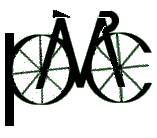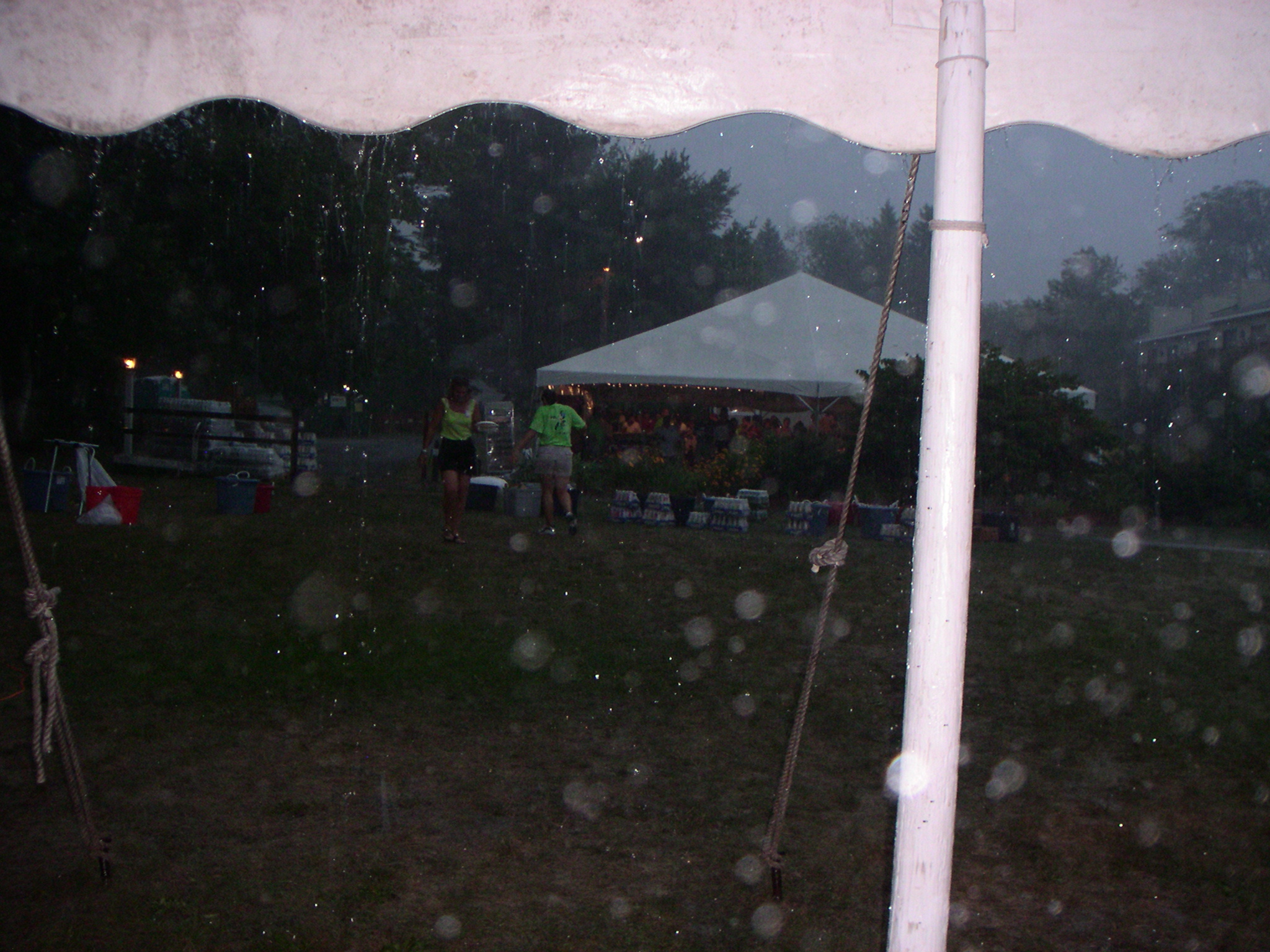 Use eGifts
to make a contribution to the PMC.
Use eGifts
to make a contribution to the PMC.
Dining in the deluge

Summer is here - time for my 17th annual fund-raiser, the Pan-Mass Challenge (PMC), a 190-mile bike ride for the Jimmy Fund and the Dana-Farber Cancer Institute (DFCI). The PMC's goal for 2004 is $21 million. Last November, while at a Girl Scout event, I bumped into my high school prom date, Zebby, who I had not seen in 28 years. We talked about friends and families, and her brother, a PMC rider. Here is her story, from a notebook she kept while going through this life-changing event.
In 1999, busy with 3 young kids, Zebby missed her annual spring checkup. In June she went to the funeral for a close friend who passed away from cervical cancer, and decided to visit her doctor, just in case. He found a 1cm lump that was almost under her arm by manual exam, even though the mammogram did not show the tumor (mammograms indicate the calcification, which her body did not produce, not the actually tumor). The biopsy showed that it definitely was breast cancer. Zebby decided to work with New England Hematology and Oncology where she started her treatment. She had a lumpectomy on July 1 to have it removed and started chemotherapy with Adriomycin and Cytoxcin. The mass was small, and only stage 2 (out of 4) but it had started to spread to her lymph nodes.
The basic idea behind chemotherapy is to kill fast growing cells like the cancer cells. Unfortunately, while the cancer cells are being poisoned, normal cells are in for a rough time. Innocent bystanders are affected, such as hair cells, and the digestive tract lining, leading to baldness and nausea. In Zebby's case, she could not even drink water to wash down the anti-nausea medicines, and had to be hospitalized because of dehydration after the first treatment. After that she had an operation to have a porta-cath put in to get hydrated in the doctors office after each treatment. Chemotherapy is given on a 3 week schedule which follows the growth cycle of the cancer cells. It also gives the patient time to recover between treatments, so Zebby ate all she could until she was hit with the next dose. This went on for 4 exhaustive treatments.
Then she had another round of chemo with Taxol which is given because of the lymph node involvement. This did not affect the digestive tract so she was told to eat anything she wanted to gain back all the weight she lost. That also was 4 treatments once every three weeks. In January 2000 she started radiation treatments at Metrowest medical center which has a Dana Farber clinic. March 2000 she started taking Tamoxifin for 5 years.
Zebby has high praise for both groups of medical professionals for treating her as a person, not as disease. When you are going back, month after month, for some brutal treatments, the support of the doctors and nurses makes a big difference. Meanwhile, neighbors and family took care of her family, keeping her kids happy and busy and the fridge stocked with food, at a time when she could not stand the smell of food.
She was incredibly inspired and grateful for the courage the patients who had been treated for breast cancer before her. Because of them, the treatments she got had been proven to work. "If this had happened eight years earlier, the treatments would have seemed like the Dark Ages. Today, my treatments have been improved even more. With the research and trials that are happening every day, each person that has to deal with this will have a better chance of survival. Words can't express my thanks enough to all the people that made it possible for me to go on with my incredible life with my family, from the donors of money to the researchers to the doctors and the patients with their incredible courage and strength. I thank God every day for all those people. I would not be here without them all."
One further note from Zebby. "What I tell people when they say the have been diagnosed is to get a notebook and write down any question that comes into your head. The only stupid question is the one that is not asked. Once the question is written down you don't have to remember it. Most of my questions came up in the middle of the night. Then your mind can just cope with other stuff. My doctors would laugh when they saw me saying "her she comes with her big notebook". Those doctors appointments can seem to go so fast and then you might not get all your questions answered. This way they all get answered and you are not racking your brain trying to remember something. The information over load is over whelming. I also had the doctors and nurses write down in my note book information that they were telling me, i.e., medicine and their doses, etc., so I would be confident that I had it right. It really helped."
Thank you for your help!
Chris Spear